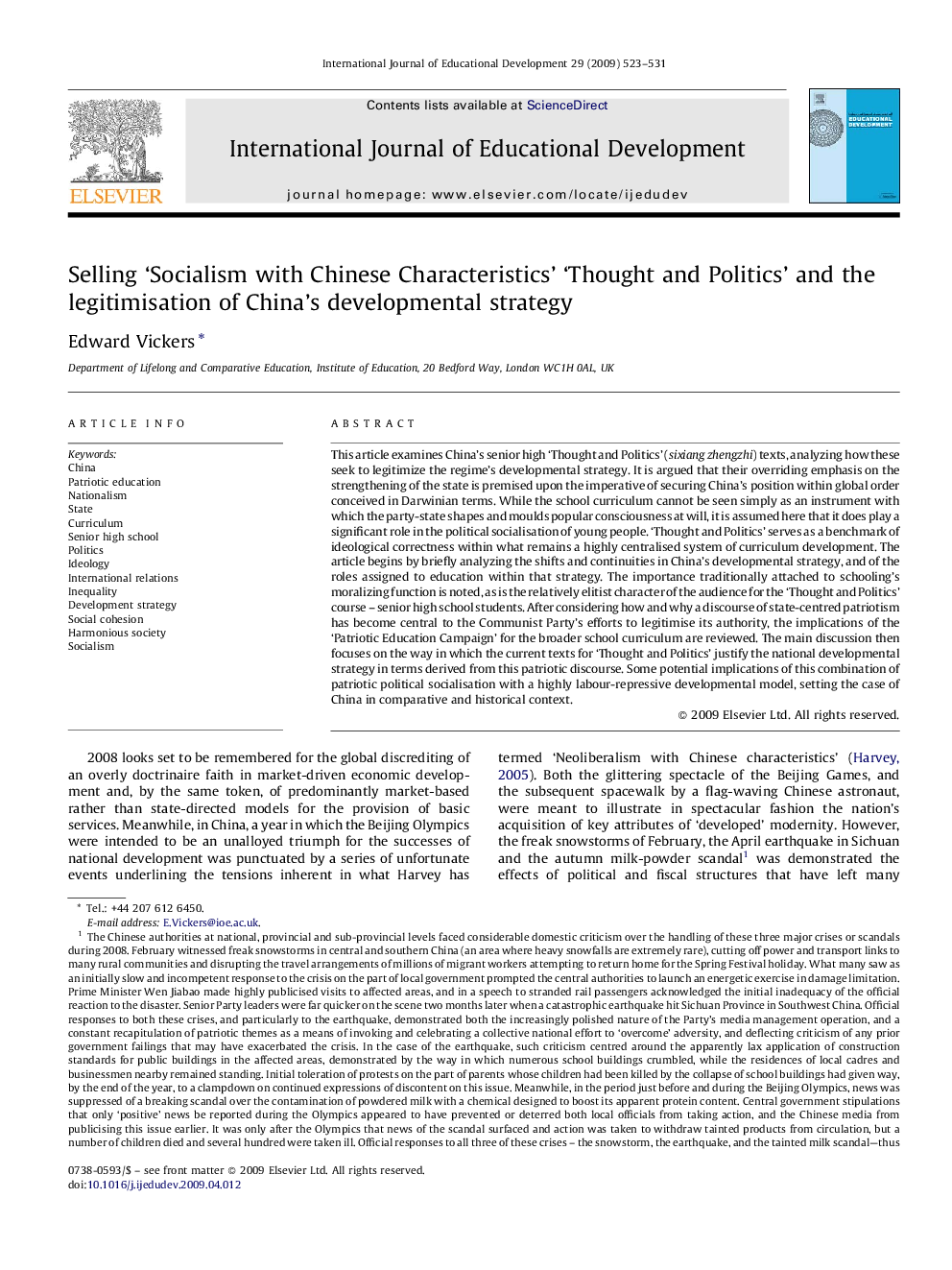| Article ID | Journal | Published Year | Pages | File Type |
|---|---|---|---|---|
| 356522 | International Journal of Educational Development | 2009 | 9 Pages |
This article examines China's senior high ‘Thought and Politics’ (sixiang zhengzhi) texts, analyzing how these seek to legitimize the regime's developmental strategy. It is argued that their overriding emphasis on the strengthening of the state is premised upon the imperative of securing China's position within global order conceived in Darwinian terms. While the school curriculum cannot be seen simply as an instrument with which the party-state shapes and moulds popular consciousness at will, it is assumed here that it does play a significant role in the political socialisation of young people. ‘Thought and Politics’ serves as a benchmark of ideological correctness within what remains a highly centralised system of curriculum development. The article begins by briefly analyzing the shifts and continuities in China's developmental strategy, and of the roles assigned to education within that strategy. The importance traditionally attached to schooling's moralizing function is noted, as is the relatively elitist character of the audience for the ‘Thought and Politics’ course – senior high school students. After considering how and why a discourse of state-centred patriotism has become central to the Communist Party's efforts to legitimise its authority, the implications of the ‘Patriotic Education Campaign’ for the broader school curriculum are reviewed. The main discussion then focuses on the way in which the current texts for ‘Thought and Politics’ justify the national developmental strategy in terms derived from this patriotic discourse. Some potential implications of this combination of patriotic political socialisation with a highly labour-repressive developmental model, setting the case of China in comparative and historical context.
